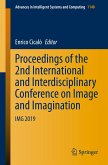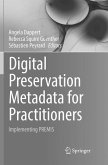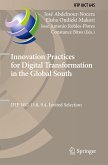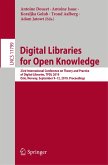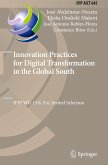This book proposes a novel approach to classification, discusses its myriad advantages, and outlines how such an approach to classification can best be pursued. It encourages a collaborative effort toward the detailed development of such a classification. This book is motivated by the increased importance of interdisciplinary scholarship in the academy, and the widely perceived shortcomings of existing knowledge organization schemes in serving interdisciplinary scholarship. It is designed for scholars of classification research, knowledge organization, the digital environment, and interdisciplinarity itself. The approach recommended blends a general classification with domain-specific classification practices. The book reaches a set of very strong conclusions:
-Existing classification systems serve interdisciplinary research and teaching poorly.
-A novel approach to classification, grounded in the phenomena studied rather than disciplines, would serve interdisciplinary scholarship much better. It would also have advantages for disciplinary scholarship. The productivity of scholarship would thus be increased.
-This novel approach is entirely feasible. Various concerns that might be raised can each be addressed. The broad outlines of what a new classification would look like are developed.
-This new approach might serve as a complement to or a substitute for existing classification systems.
-Domain analysis can and should be employed in the pursuit of a general classification. This will be particularly important with respect to interdisciplinary domains.
-Though the impetus for this novel approach comes from interdisciplinarity, it is also better suited to the needs of the Semantic Web, and a digital environment more generally.
Though the primary focus of the book is on classification systems, most chapters also address how the analysis could be extended to thesauri and ontologies. The possibilityof a universal thesaurus is explored. The classification proposed has many of the advantages sought in ontologies for the Semantic Web. The book is therefore of interest to scholars working in these areas as well.
-Existing classification systems serve interdisciplinary research and teaching poorly.
-A novel approach to classification, grounded in the phenomena studied rather than disciplines, would serve interdisciplinary scholarship much better. It would also have advantages for disciplinary scholarship. The productivity of scholarship would thus be increased.
-This novel approach is entirely feasible. Various concerns that might be raised can each be addressed. The broad outlines of what a new classification would look like are developed.
-This new approach might serve as a complement to or a substitute for existing classification systems.
-Domain analysis can and should be employed in the pursuit of a general classification. This will be particularly important with respect to interdisciplinary domains.
-Though the impetus for this novel approach comes from interdisciplinarity, it is also better suited to the needs of the Semantic Web, and a digital environment more generally.
Though the primary focus of the book is on classification systems, most chapters also address how the analysis could be extended to thesauri and ontologies. The possibilityof a universal thesaurus is explored. The classification proposed has many of the advantages sought in ontologies for the Semantic Web. The book is therefore of interest to scholars working in these areas as well.




